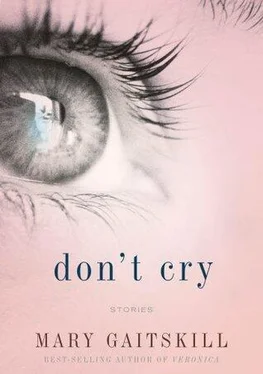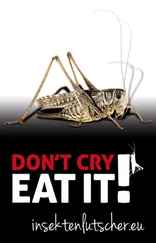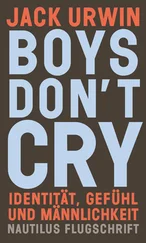I shifted my eyes. White seeped through the soft gray of the sky; the earth hummed through the waving hairs of its pale grasses, its bright leaves, the pores of its dark flesh. My body remembered the flesh of my husband's arms, the warm intelligence of his chest, his willful, goatish belly As my memory embraced him, his body changed: I felt his muscles grow soft, his will diffuse and fade, his chest become sad hairy boobs.
One of the boys turned to us and said something. I dried my eyes. Yonas said, “Okay, we're here.”
He had brought us to a church built into the earth. The church was in a ravine; looking at it was like looking down into a ruined palace without a roof, a system of courtyards, chambers, and antechambers that, instead of being built into the air, had been carved into the earth. There were footholds going toward it that had probably once been steps, but they were eroded and overgrown now. Still, we made our way down slowly, crouching and clutching at bushes and vines that felt alive enough to close over our heads and swallow us, not like an animal, but an element. We reached the bottom and looked up at the lip of the gully and the sky, and it looked to me like something temporal and far away from this place that had the power to swallow us and not give us back.
Inside, the church seemed to have originally been carved so that it would appear nearly natural, an expression of the earth's mind. In its decay it was covered with lichen, deep-colored moss, and small trees; it smelled like rock and hummus. There were remnants of stone arches in the roof, thickly overgrown with clinging vines. Niches were carved into the walls, and in the niches were stone figures with the faces worn away. There were stone benches, too, like pews. Farther inside, there was another short descent into a grotto, a chapel with a stream of water running through it like a vein of shining blood. The steps descending into the chapel were intact and so the descent was not that difficult. We reached the bottom and stood there, wordlessly absorbing a feeling of power opposite to the sky, embodied by earth but bigger than earth. Again came the fear of being swallowed, but also a desire to be swallowed, as if by a seducing lover. I clasped my hands and bent my head as if to pray. Instead of prayer, a memory came to me, half-blotted in darkness; a memory of my cheek on the floor, my spread knees on the floor, eyes closed, naked.
I loosed my hands and looked up. The darkened memory passed, or became a memory of something else, someone else— someone I had not thought of for years, someone I had not really thought of at all. She was Thomas's first wife, the mother of Frank and Elena; he had left her to be with me. I never met her, but I saw her once, when Thomas and I were walking down the street in Manhattan. He'D taken my arm abruptly and muttered her name under his breath. I looked and saw a small middle-aged woman in glasses looking fixedly ahead as she passed. I had turned away embarrassed. But now I saw her vividly. I saw her and felt her loneliness. On the street, she had looked about fifty — the same age I am now.
The power was on that night, and we were more comfortable. Still, I couldn't sleep for a long time. Again, Thomas came to sit on my bed. But this time his presence did not comfort me. I thought of the girl outside the orphanage, dying publicly while my friend and I stood over her, knocking on the door. Katya might go back to America with a healthy baby I would go back home and lecture writing students on the importance of specificity and the role of description. “I want you to describe it in the way only you could see it,” I would say, “you specifically.” In the dark, I hit myself with my fist — how stupid I had been. Did it matter who this girl was specifically, even to her? Her baby was sick and she was dying. Nothing more specific than that mattered, and life had made that plain to her. It was I who had been fooled.
For two days, wherever we went, no one was available to speak with us. Finally, we went back to the first place we had tried. This time, the dying girl was not there — though I thought I could make out a shadow, perhaps an indentation or soft mark where she had lain. We were about to turn and go, when the door was opened.
The head nun was a tall, erect woman with a still, cold face and fiery eyes — but the fire seemed to come from far away, far down in the hole of herself. We sat with her in her office and she told us the story of another woman who had come to do an independent adoption; the story took almost an hour to tell, and in the end, the woman had left Addis Ababa to look elsewhere. As an afterthought, the nun added that, at present, she had no babies.
“But what about the girl who was outside the door a few days ago?” asked Katya. “She was obviously very sick and she had a beautiful baby and I was wondering if you took that baby in?”
The head nun said that if the girl was sick, she was probably with her family now. And then she made it clear we were to leave.
Some version of this episode was repeated for several days at several different orphanages. Sometimes we were not allowed in at all. Sometimes we were allowed in but not allowed to see anyone in charge. Finally, Katya went to the ministry that oversees adoptions to meet with the man that everyone referred to as “the head;” we never discovered his actual title. He suggested that we go to an orphanage on the outskirts of town, but when we got there, we were told that they had no babies available, either. Just as the supervisor, or whatever she was, told us this, a baby began crying in the next room.
Katya stood up, one hand on her hip, the other pointed toward the sound. “And what,” she demanded, “is that?”
“Obviously, that is a baby,” said the woman stiffly. “But as this baby has AIDS, he is not up for adoption in America.”
Katya sat back down; she put her head in her hands. “I'm sorry,” she said. “I don't mean to be rude.”
The supervisor sighed and leaned back in her chair. She looked out the window for a long moment. When she looked back, she said, “I should not tell you this, but I am going to tell you. The head of Social Services explicitly told us that you were coming. And he explicitly told us that we were not to do any independent adoptions. That's it. No independent adoptions.”
Katya jumped up. “But he told us to come here!”
“If he has changed his mind,” said the woman, “then he needs to put it in writing. You need to get a letter from him stating that he gives permission. And I doubt that he will give it to you.”
The next day, Katya was sick with diarrhea and couldn't eat anything but clear tea and a banana. Still, we went to see the head of Social Services. Katya went in to meet him in his office; I stayed in the car with Yonas. He talked to me about the election; he said the government had lied about the results in order to hold on to power and that people were going to fight about it. I asked him how he had learned to speak English so well. He said that he had studied it at the university and that driving had given him the chance to practice. He had studied for only a year, even though he loved it; his brother and sister had children and he needed to help make money for them, so they could get the best education possible. He also volunteered for an organization specifically for the education of girls. “Like that girl we saw outside the orphanage,” he said.
When he asked about my family, I told him about Thomas: that he wrote books about Spanish literature, that he had been an amateur bullfighter when he was young. I described for him a film clip of Thomas leaning into a bull, his brow pressed against the brow of the animal, as if both to conquer it and passionately kiss it. It wasn't as daring as it looked; the animal was about to die. In fact, the next moment, Thomas stepped away from it, and the animal fell and died.
Читать дальше












